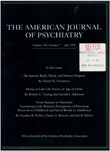Should psychiatrists administer anesthesia for ECT?
Abstract
Whether psychiatrists are qualified to give anesthesia for ECT is controversial. At the authors' hospital, over a 9-year period ECT resulted in no mortality and minimal morbidity; in 98.8% of the treatments, anesthesia was given by psychiatrists. The average nursing time required for cases in which anesthesiologists administered anesthetic was longer than that for psychiatrists' cases. This difference may be related to succinylcholine dose and efficacy of ECT. The authors' surveys indicated that psychiatrists and anesthesiologists have differing opinions on whether psychiatrists should administer anesthesia for ECT and that few psychiatry residency programs which teach ECT provide training in anesthesia.
Access content
To read the fulltext, please use one of the options below to sign in or purchase access.- Personal login
- Institutional Login
- Sign in via OpenAthens
- Register for access
-
Please login/register if you wish to pair your device and check access availability.
Not a subscriber?
PsychiatryOnline subscription options offer access to the DSM-5 library, books, journals, CME, and patient resources. This all-in-one virtual library provides psychiatrists and mental health professionals with key resources for diagnosis, treatment, research, and professional development.
Need more help? PsychiatryOnline Customer Service may be reached by emailing [email protected] or by calling 800-368-5777 (in the U.S.) or 703-907-7322 (outside the U.S.).



